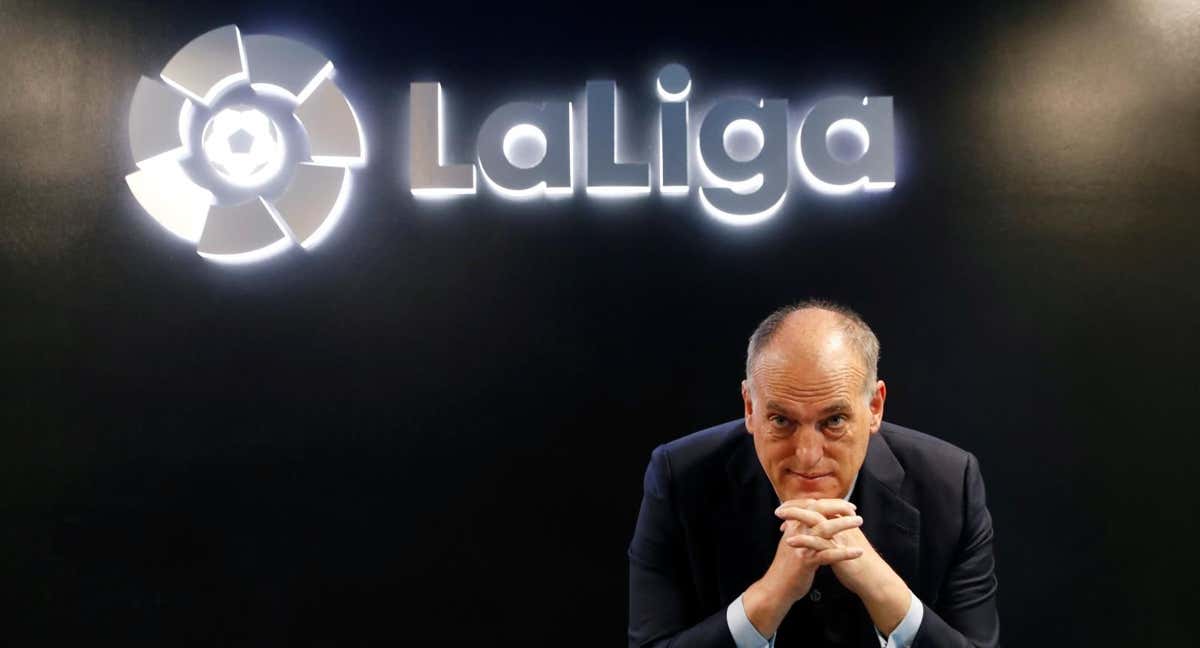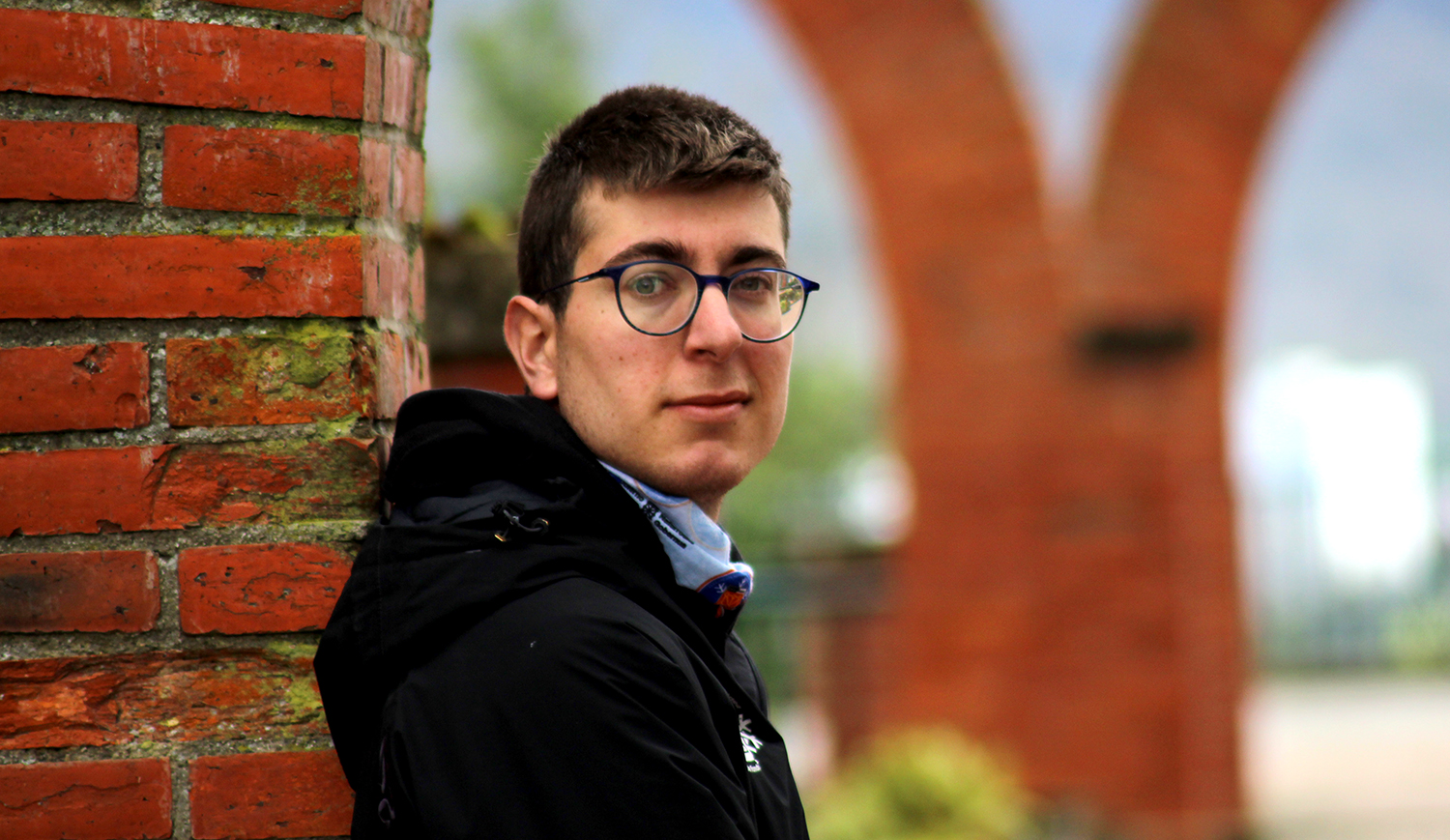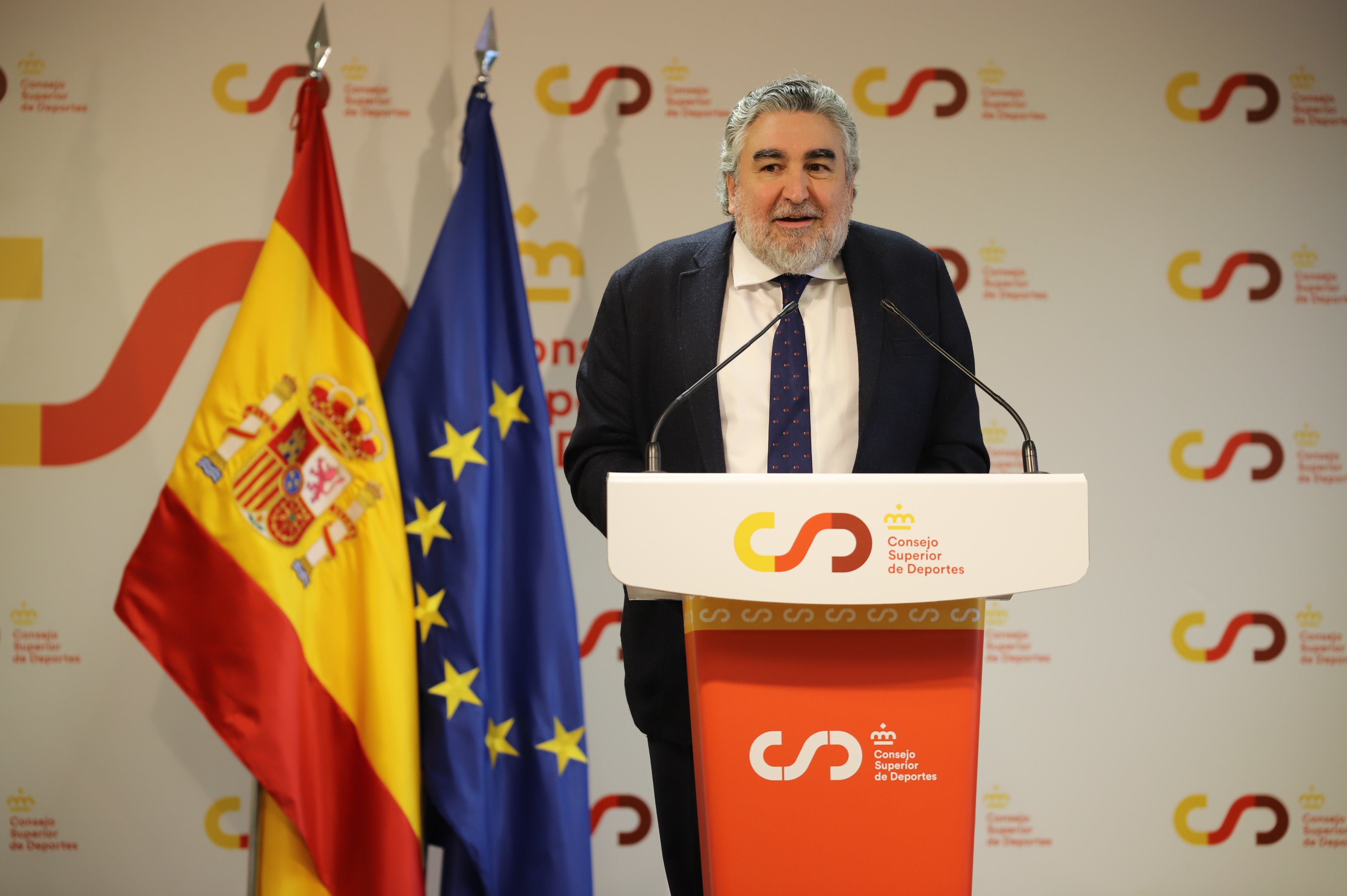Working the body taking care of the head
- Sport is a tool. How, when and for what it is used, can be good or bad. Healthy or dangerous. Relaxing or suffocating. It can promote the integral development of children, but it can also become an obstacle in this process. Elite athletes are a source of pleasure and livelihoods, but they can cause many headaches from injury, pressure and lack of resources to understand the inner world of oneself. All this has been the subject of extensive reflection by high-level athletes at the Gurea de Villabona Theatre, at a conference organized by the ball club Behar Zana on the occasion of its 77th anniversary.
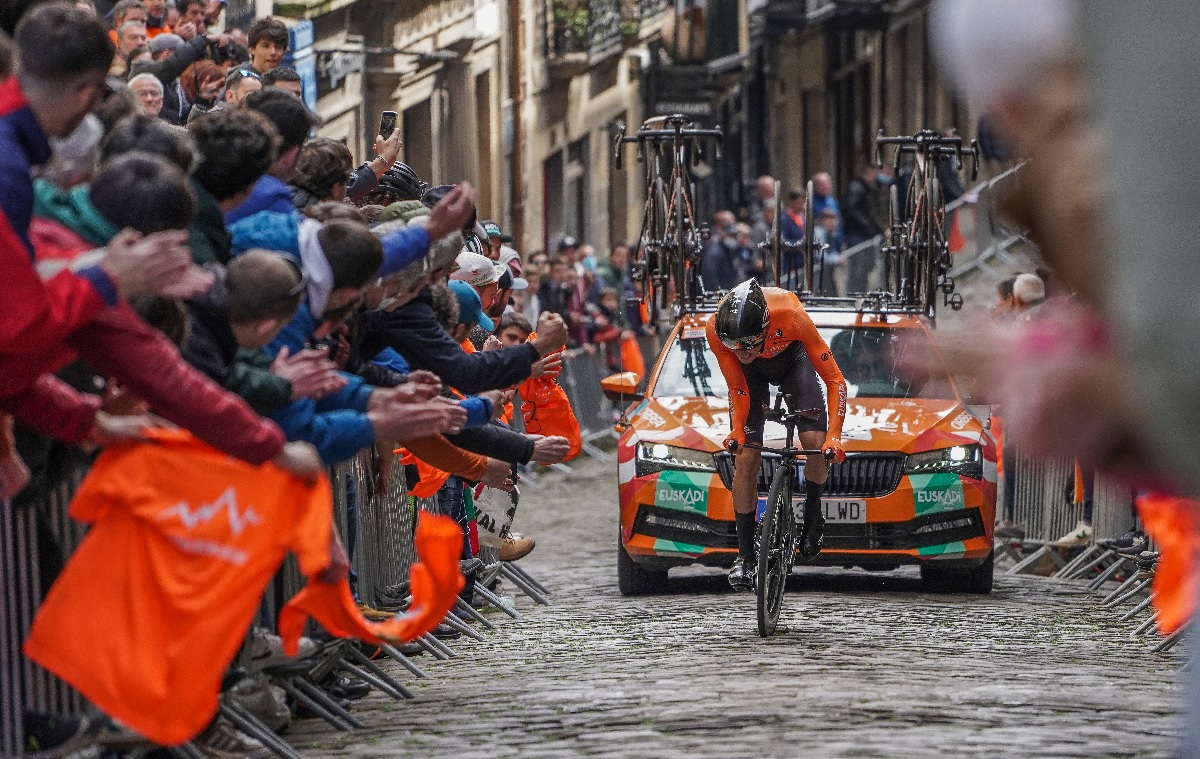
The goal of performance athletes is to be physically fit. They have the body as a tool and for its elaboration follow rigorous training and feeding plans. However, the most important paragraph – the head – is often rejected. Each person has a complex emotional and psychological slaughter that can be totally confused with the requirement of elite sport. For with the loss of mental balance it is very difficult to win games, races or competitions, and it is absolutely impossible to enjoy sport.
In recent times, many leading athletes have removed mental health from the drawer of the issues to be avoided, and on 1 June the ball club Behar Zana put on the table. The table brought together seven Basque sports leaders: Iker Irribarria and former professional pelotari Axier Arteaga, the popular athlete ‘Zelai III’ Karmele Gisasola, mountain runner Hassan Ait Chau, the sports director of the Real Sociedad Garbiñe Etxeberria, former cyclist Mikel Snow and athlete Iraitz Arrospide. Oidui Usabiaga, professor and researcher at the UPV/EHU, also joined to discuss the risks of early specialization in sports initiation. The journalist Jon Escudero spoke as presenter and moderator.
“When I got good results, I felt excited and enthusiastic. But there were a lot of things hidden. Then I suffered an injury, and although I had a lot of pressure, I was not aware of it.” Iraitz Arrospide, mountain runner.
The first reflections of the rapporteurs revolved around pressure from athletes. The smile got the first head hat at age 19, and from there the pressure became very strong. “I won the txapela very soon, and I still had no tools to stay calm. It was a very good economic and sports victory, but in my day to day I noticed a huge burden.” The expectations created around him drowned the Smile. Gisasola also started to feel pressure when he won the “hat.” In this sense, it has not done well to be the daughter of harrijasotzaile Jose Antonio Gisasola ‘Zelai’. “At first I didn’t have to prove who I am a daughter, but this changed as I gained. My father puts pressure on me: he tells me to win. We have two different ways of living contests.”
Garbiñe Etxeberria has to make “difficult decisions” as sports director. It should not be easy, for example, to open the exit door to players. “Sometimes gamblers are very disgusted when they tell you they’re not going to team on, and it’s tough as when you don’t agree on a negotiation.” He had “less headache” in times of soccer player. She didn't feel psychological anxiety. Hassan Ait Chaou and Mikel Snow have also been able to maintain their mental stability. Instead of the pressure from the outside, we have seen our own. “I am very quiet, but some competitors cannot manage the nervousness. Sometimes the situation makes them overflowing: they appear at the exit, but then they leave,” explained Ait Chau.
“The children come home and we ask them what they have done during the game instead of asking them what they have done. Doing what you do, enjoying should be the priority.” Hassan Ait Chaou, mountain runner.
Axier Arteaga, for example, was very nervous on the court when his trajectory began to decline. “I played the most important finals very quiet, but as I started to go down, I noticed enormous pressure. I wasn’t fulfilling what was expected of me.” The perception of pressure depends largely on its nature. “In the same situation, one athlete can be motivated and another can be discouraged or disturbed.” In order to manage the pressure, we first have to identify it and recognize the problem that cost Arteaga. “You don’t know why you feel like this. What’s more, you’re not aware of all that pressure.” A similar experience has had Iraitz Arrospide. “When I got good results, I felt excited and enthusiastic. But there were a lot of things hidden. Then I suffered an injury, and although I had a lot of pressure, I was not aware of it.”
Exploring and accepting fear
What to do, that identity itself can be confused with the profession of each, a trend that is even more evident among elite athletes. Thus summarized Irribarria: “Athletes are athletes 24 hours.” They basically risk believing that what they are, their activity and even the results they get define it. So you can put your failures on the edge of the chasm. To feel valuable, you need to win. Mediocrity causes panic. Fear is precisely what athletes perceive as pressure, Arteaga explained. “You pay attention to what can go wrong and start thinking, to see what will happen if you lose, if you are going to be valuable or not, what others think…” The need for external evaluation further worsens the situation. “Thinking that you’re not going to be valuable to yours or that the company neglects you can cause a lot of fear.”
“We must learn and internalize that not winning is an opportunity. The matches can be matched and even lost, and the tournament only wins one team.” Garbiñe Etxeberria, sports director of the Real Sociedad.
In the words of the smile, “a feeling of staying alone” after failing. “That was what scared me the most, more than the party or the defeat.” On the other hand, Gisasola tends to be “afraid to suffer” before going to the plaza. “I know I have to suffer and I don’t want to suffer. These are usually tests for two or three minutes, but until I start I'm negative. Then you fear that the stone will drop you. You have to face many ghosts.” To break these invisible chains, the popular athlete believes that the key is “learning to lose”. Arteaga, meanwhile, proposed introspection as a solution. “The first thing you have to do is analyze fear. Once aware of its origin, the next step is to accept fear.” Smile matches: “When you accept fear, that fear loses most of its strength.”
Influence of the type of sport
In some sports, not everything is black or white, wins or loses. In cycling, for example, there are other variables that are considered beyond simple results. Mikel Snow knows that well. “In general, your work is positively valued if you’ve been thin on the leak or at work. And reaching the tenth can be a good result. In addition, despite the bad day, the next day you have another chance, so you can take the quieter things.” For the smile, this concept should be more widespread. “To the ball, you make a bad game and you come out.” In athletics, on the other hand, the difficulty is given by “being within time,” Arrospide explained. “We always look at the clock. Every race is like a time and you have to have the best day to get your best brand. In addition, it's a solo sport and you can't hide it. It takes a lot of mental work.”
“Just as we work eight hours a day, sport has its risks. And it is clear that there are mental health problems when sports specialization is early.” Oidui Usabiaga, professor at the UPV.
From the research point of view, Oidui Usabiaga considers that all sports are affected by pressure. “This is related to the competition. However, there are differences between collective and individual sports. Violence and confrontation live differently. But if competition is sport, there is always pressure.” And of course, if you play with your feet and a ball. Because if there are sports that depend on results, that's football. “This is another world,” Etxeberria said. “Imagine the model Mourinho gave the other day, when he retired the silver medal from the coconut and gave it to the fans. We must learn and internalize that not winning is an opportunity. The matches can be matched and even lost, and the tournament only wins one team.”
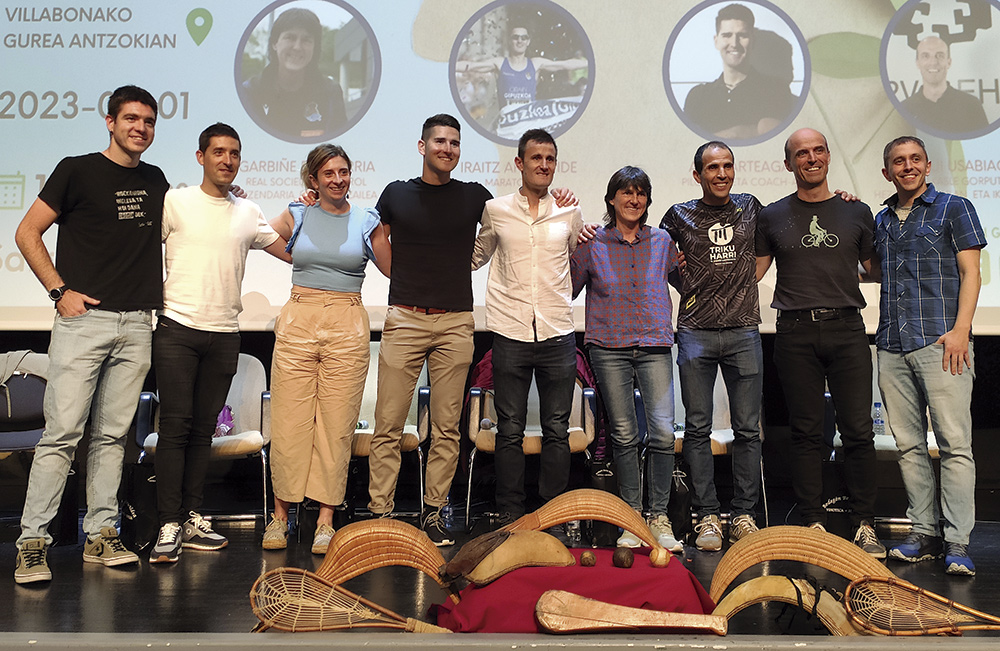
Ait Chau believes it is a matter of value. “If others are better than you and have achieved a better result, you have to congratulate them and it is now. We are competitive, but there are values that can never be lost, such as respect and friendship.” This requires us to stand up and look away from our own height and the results.
Better sooner than later
In society and in sport, destructive competitiveness overrides building values. “In this capitalist system, all that is worth is getting up and succeeding. It is not enough to strive. Nor do we improve as an athlete and as a person,” Arteaga said. This vision is incorporated from childhood to athletes. Ait Chauri thinks: “The children come home and we ask them what they have done during the game instead of asking them what they have done. Doing what you do, enjoying should be the priority.” Usabiaga added a nuance to this reflection: “But what is pleasure for children? It is about putting it into practice. Then you'll have to see what you're doing and what you want. But that should come later. If as a child he tells you that he wants to specialize in a certain sport, I wouldn’t allow it.”
“I know I have to suffer in the plaza and I don’t want to suffer. I refuse until I start. Then you fear that the stone will drop you. You have to face many ghosts.” Karmele Gisasola 'Zelai III', popular sportsman
Usabiaga has investigated the consequences of directing children to one sport and has found many evidences that consider this trend harmful. According to him, by spending a lot of time in a certain sport, the context necessarily becomes competitive, giving way to expectations, and all this generates “enormous stress situations” among children. “We are studying the age range below thirteen years. Achieving performance requires specialization that always carries more risks. Just as eight hours of work a day have their risks, so does sport. And it is clear that there are mental health problems when sports specialization is early.”
When the time comes, you have to choose one sport or another. This is the case of Etxeberria. “When the time comes, you have to make a bet. And from there, improve to the maximum, considering that not everyone enjoys sport or is not good.” Response from Usabiaga: “Yes, if someone wants to make the way to performance they have every right. The question is when you start and how much you train. Internationally, pediatricians also say: there is no specialization below the age of thirteen.” But society wants more and more young athletes at the elite. “Just as we don’t put our eight-year-old kids in the factory, we can’t put 20 hours a week doing the same sport. Because there is a huge risk of injuries that will never be overcome.”
“I started with nine years of cycling, but I joined him with many other sports. Until an age, children must be taught to do everything and enjoy sport.” Mikel Snow, cyclist.
Alternatively, Usabiaga proposes “late specialization” as it is beneficial not only for health, but also for performance. “You can get the same level if you specialize in a sport after adolescence. It also reduces the risk of injury. So it’s better to start later.” Snow feels good. “I started with nine years of cycling, but I joined him with many other sports. Until an age, children must be taught to do everything and enjoy sport.” In this sense, Etxeberria praised Gipuzkoa’s “multisport model”. “They force children to practice more than one sport, and that’s a great support, even if they don’t like many parents.” “Most parents are sensible, but not all, and institutions have to be above the red line,” said the UPV researcher.
“Emotional heritage” as a barrier
For Etxeberria, the most important thing is “enjoying the process” and for this they offer “all the resources” in the Real Sociedad. “They have education teachers and psychologists to work on group cohesion, respect and emotional control. That cannot be found everywhere.” In rural sports, Gisasola perceives an “increasingly open attitude” in the mental. “It’s now more normal to hear the psychologist. At home they're old law. They say that at the time everything was tougher and advanced. But if I need help, I need it, and period.”
“In Basque society there are still more obstacles to normalizing mental health, because it is very traditional. And as sports here are part of the Basque tradition, they are still more backward.” Axier Arteaga, pelotari.
According to the smile, it has not yet normalized to talk about mental health. “I asked for help and was one of the first to accept it publicly. People looked at me like it was weird. Also at home.” The former pelotari spoke of the “emotional heritage” of his parents. “It was other times, society was organized differently, and everything was required. You have to break that rope.” Looking back, I was going to do “very different things.” “To start, I would ask for help before.” He invited him to look inwards. “We didn’t take any time for us. I meditate a lot and I also read. I try to improve and seek meaning in life.” “Having a good company also helps a lot,” Gisasola added.
Arteaga currently works as a coach, who also made a critical reading. “More and more people talk about mental health, partly thanks to sport. However, many athletes do not mean they work with a coach. In Basque society there are still more obstacles, because it is very traditional. And as sports here are part of the Basque tradition, they are still more backward.”
“We didn’t take any time for us. I meditate a lot and I also read. I try to improve and seek meaning in life.” Iker Irribarria, Pelotari.
Etxeberria was more optimistic. “We have taken an important step in bringing such a topic here. It's a sign that something is changing. We must treat it naturally.”
Irungo Landetxa auzoko pala txapelketa mistoan, hogei bikotetik bakarra da emakumeek osatua, 40 lagunetik bi baino ez dira emakumeak: Idoia Karrera eta Loiola Zuazu. Lehiaz, txapelketa misto eta ez mistoen arteko aldeez eta joko-mailaz mintzatu gara haiekin. "Emakumeok... [+]
Lehengai anitzekin papera egitea dute urteroko erronka Tolosako Lanbide Heziketako Institutuko kimika industrialeko ikasleek: platano azalekin, orburuekin, lastoarekin, iratzearekin nahiz bakero zaharrekin egin dituzte probak azken urteotan. Aurtengoan, pilota eskoletan kiloka... [+]
Historia errepikatzen dela idatzi zuen Marxek, “lehenik tragedia gisa, gero fartsa moduan”. Armagintzaren eta militarismoaren inguruan errepikapen hutsa ez, espiralean goraka doan buklea ari gara bizitzen, fartsatik asko duena, eta tragedian amaitzeko gero eta aukera... [+]
Azken aldian, asteburuetan, Internet ez dabil ondo. Hasieran, zaila zen webguneei ezarritako blokeoen zergatia ulertzea; orain, badakigu Espainiako La Ligak agindu zituela, futbola modu ilegalean emititzea saihesteko. La Ligaren blokeoak euskal domeinuei eragiten dien... [+]
Orain arte desgaituak ez diren pertsonekin lehiatu da Uharteko Ipar Eski Taldeko Eneko Leyun eskiatzailea (Iruñea, 1998). 2024-2025 denboraldian, lehenengo aldiz parte hartu du Adimen Urritasuna duten Pertsonentzako Iraupeneko Eskiko Espainiako Txapelketan. Urrezko... [+]
Euskal Pilotako Nazioarteko Federazioaren eta Espainiako Federazioaren arteko gatazkak bere horretan jarraitzen duen bitartean, Jose Manuel Rodriguez Uribesek euskal selekzioaren aldeko adierazpenak egin ditu. Desadostasunak direla eta, Nazioarteko Pilota Federazioaren eta... [+]
Ertzaintzak martxoaren 13an Bilbon zauritutako bi pertsonaren testigantza jaso ditugu. Athleticen partidaren ostean larriki zauritu zituzten aita-semeak, borra-kolpeka, eta atxilo eraman zuten haietako bat. Furgonetatik ikusi zuen ertzainek nola egin zuten tiro jendearen kontra,... [+]
Eskolaz kanpoko jardueren eskaintza zabala egiten duten ikastetxeen aldean, beste askok ez du horretarako aukerarik; eta eskola bereko ikasleen artean ere, denek ezin dute ekintzetan parte hartu, baliabide ekonomikoek baldintzatuta. Esku hartzeko dei egin diete instituzioei:... [+]
Iazko udan ere Alacant aldera hurbildu ginen eguraldi hobea aurkitu nahian eta, urtero bezala, egun batez, Benidorm erraldoian sartu ginen hango giroan murgildu, zerbait hartu eta seme-alabekin izozki edo gofre bat dastatzeko asmoz.
Hiri bitxia da, denetarik aurki dezakezu... [+]









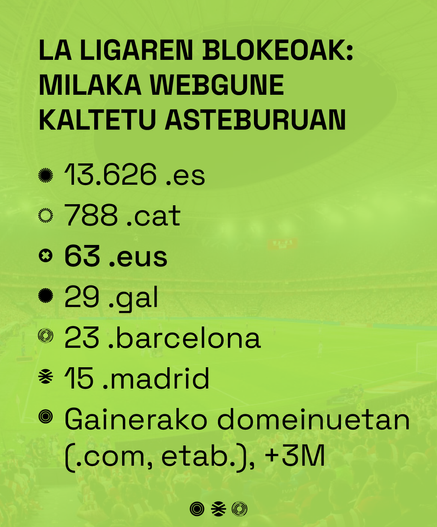

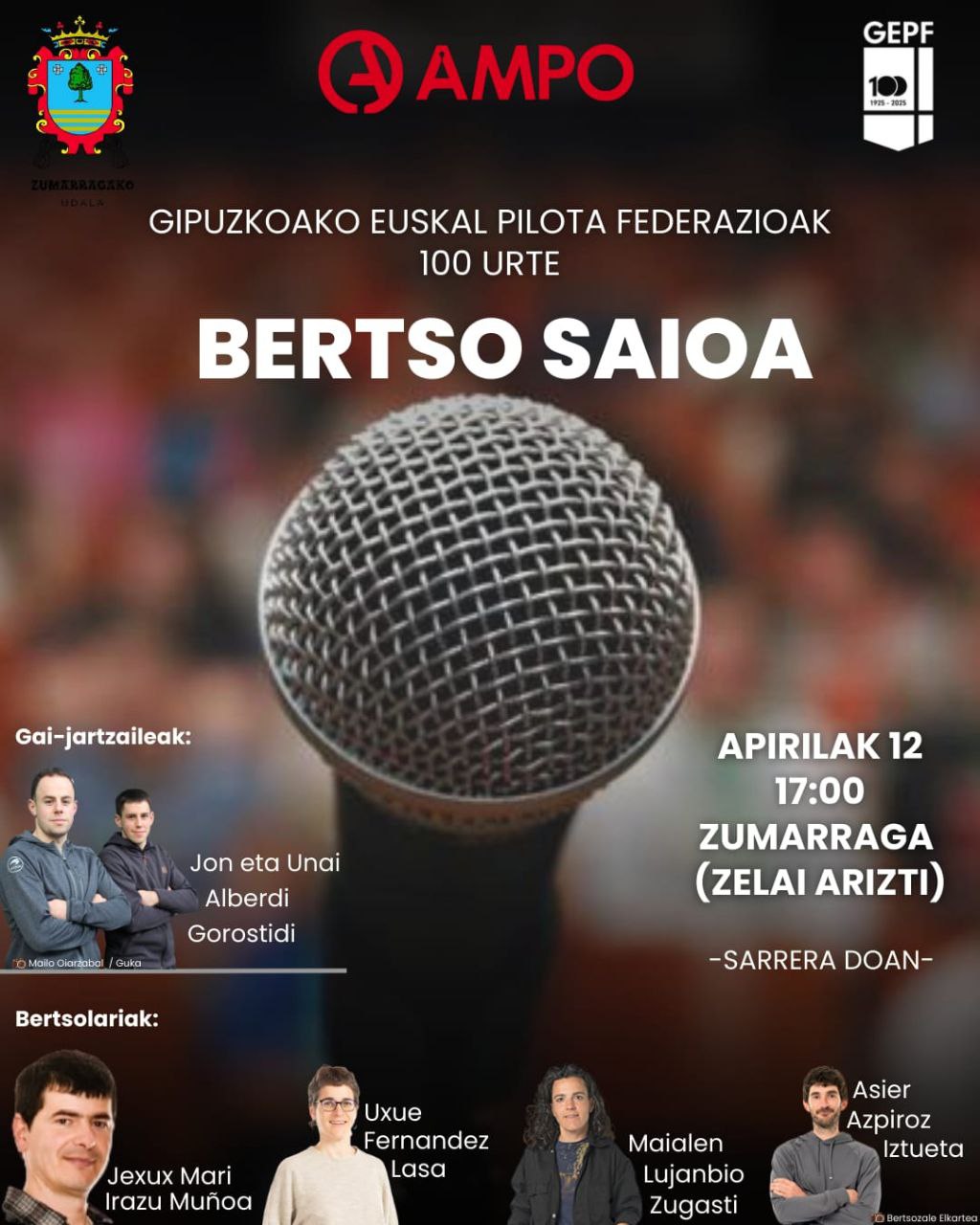

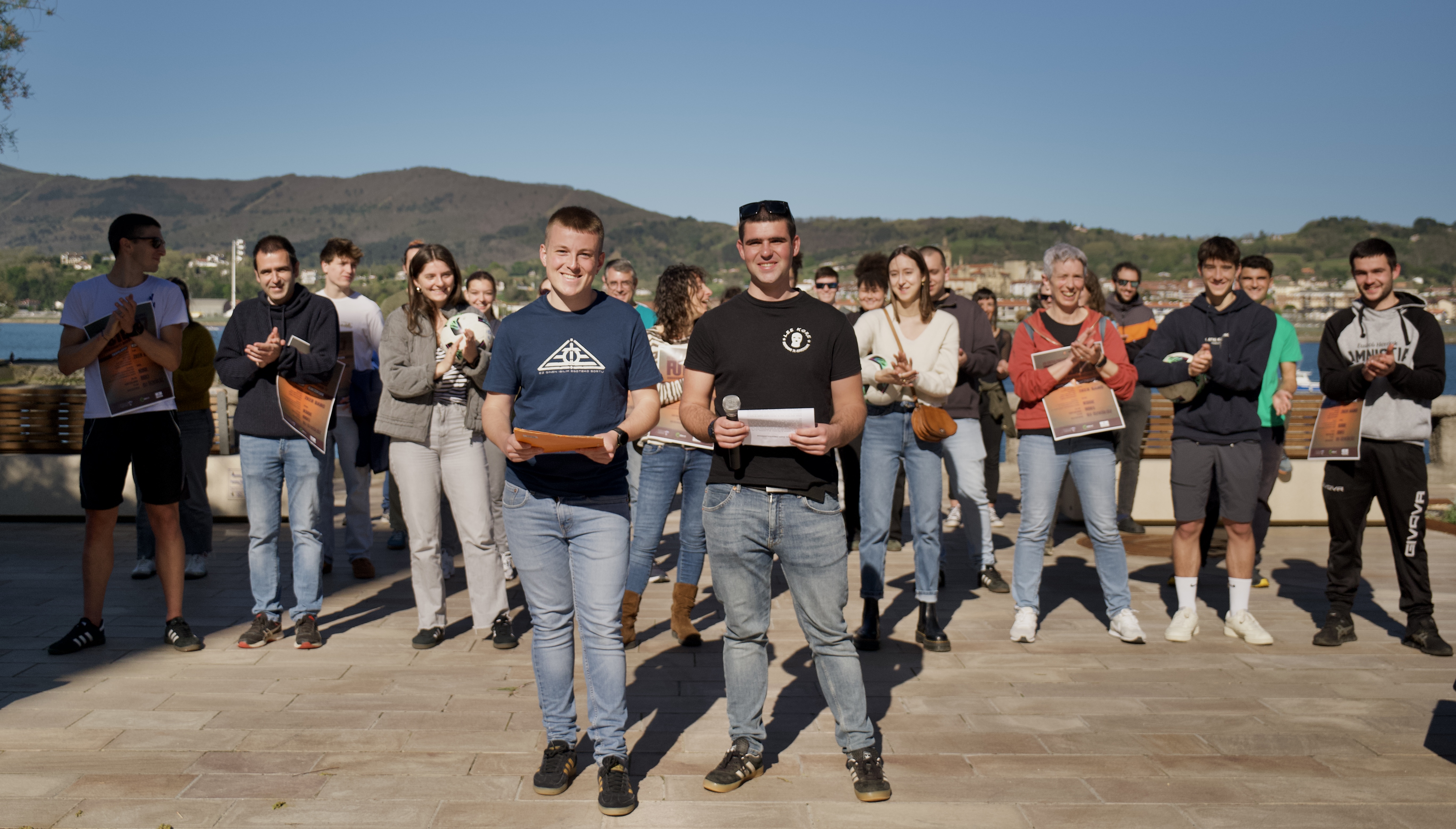

.jpg)
